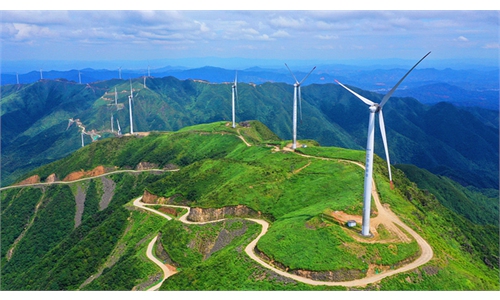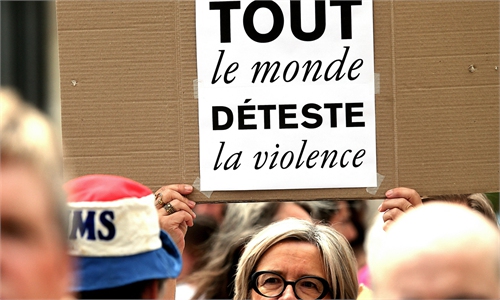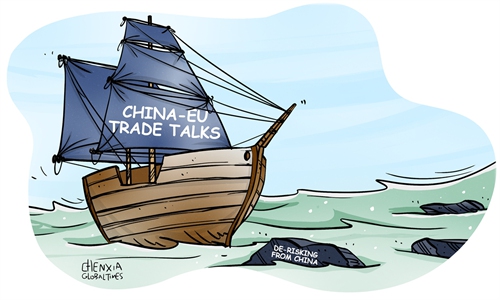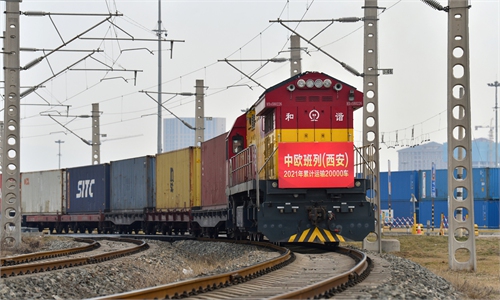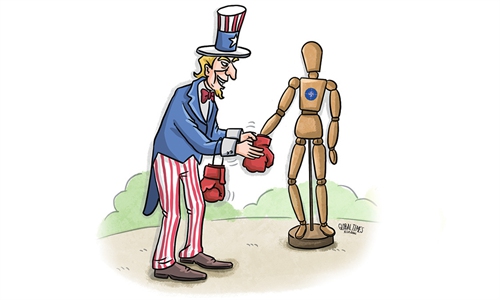China-EU high-level exchanges continue amid Borrell’s trip snub
Bloc’s multifaceted policy toward China brings challenges, leading to some ‘ups and downs’ to ties: experts
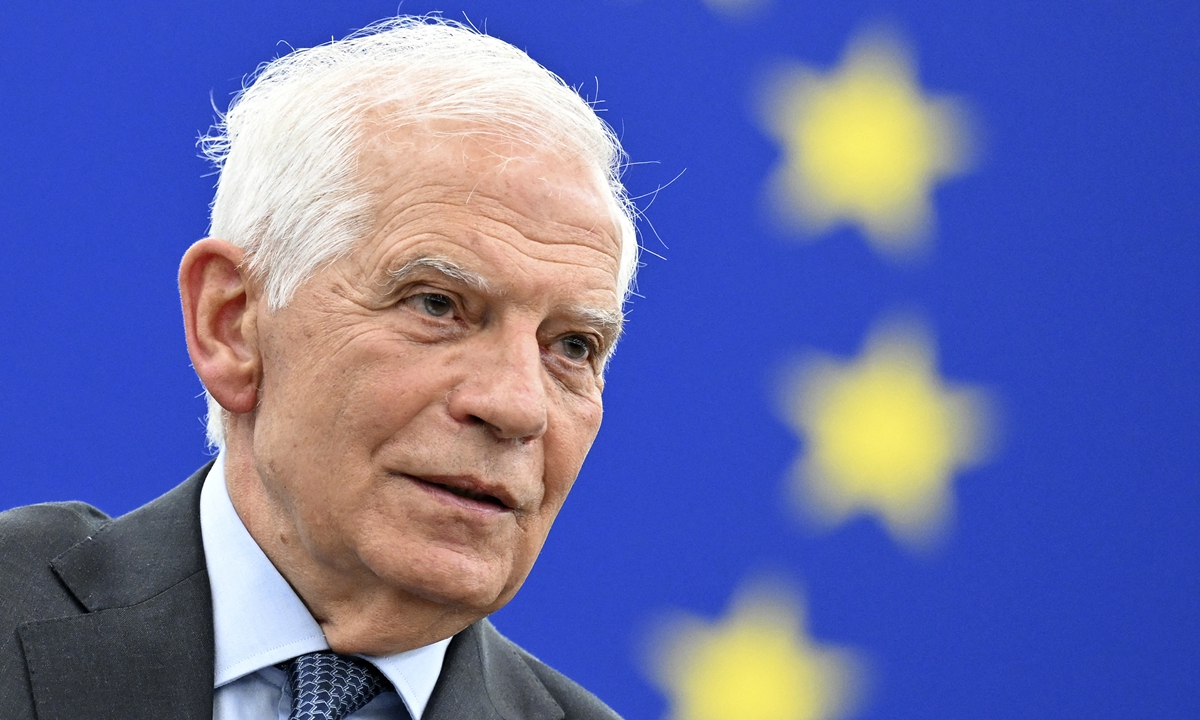
European Union foreign policy chief Josep Borrell. Photo:AFP
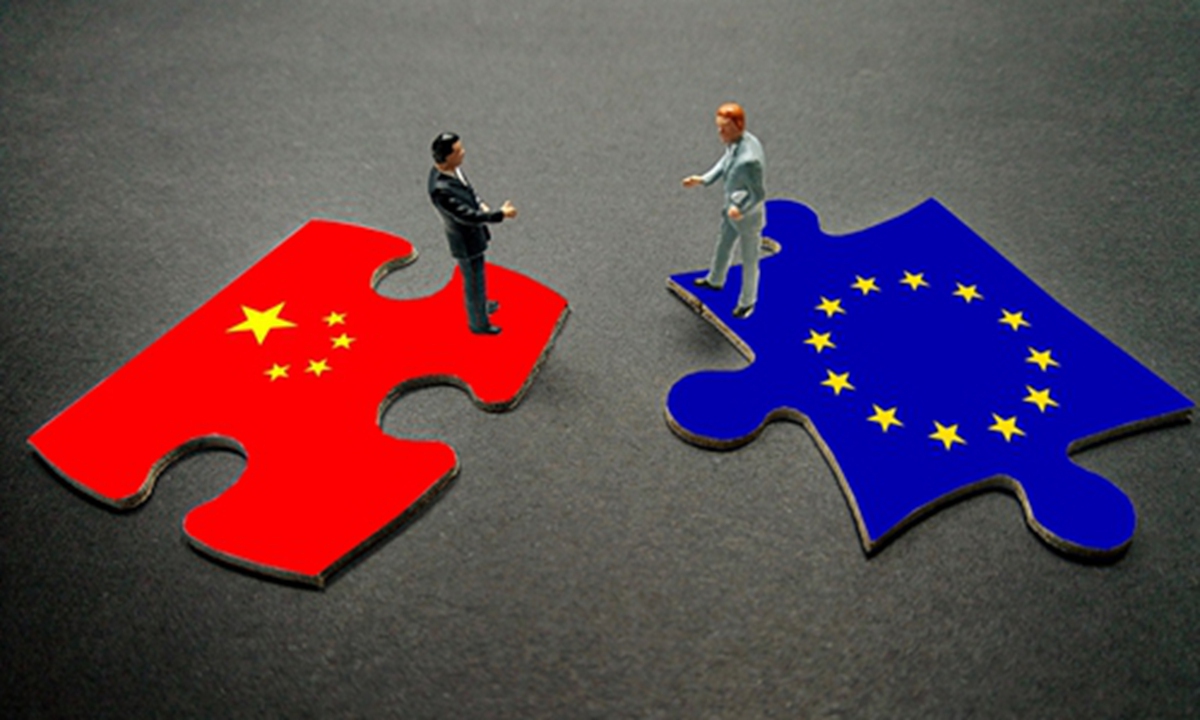 China-EU relationship Photo: VCG
China-EU relationship Photo: VCG
Amid EU's wide discussions about "de-risking" approach on China and its growing concerns over the country's latest export control of two key minerals, the EU-China relations, in spite of its overall stable status, could be affected by the bloc's multifaceted policy toward China and face some "ups and downs" in the future, some experts warned.
China has cancelled a trip by EU foreign policy chief Borrell scheduled for next week, an EU spokesperson said on Tuesday, and no reasons were given for the cancellation, Reuters reported.
The move comes as Europe seeks to reduce the risks created by its close economic relationship with China, which Brussels has dubbed an "economic competitor and a systemic rival," according to the media report.
China attaches great importance to China-EU relations and has maintained exchanges with the EU at all levels and in all fields, Chinese Foreign Ministry Spokesperson Wang Wenbin said at a press conference on Wednesday. "We welcome High Representative for Foreign Affairs and Security Policy Borrell to visit China at the earliest time convenient to both sides and are ready to maintain communication with the EU," Wang said.
Despite the reports about the canceled trip of the EU foreign policy chief, the high-level exchanges between China and the EU continued as the fourth High-level Environment and Climate Dialogue between the two sides was held Tuesday in Beijing where Chinese Vice Premier Ding Xuexiang and European Commission Executive Vice President Frans Timmermans held the talk, with both sides agreeing to deepen cooperation and play a leading role in global environmental and climate governance.
The resumption of the high-level visits between the EU and China in the post-COVID period has helped to stabilize the relationship, especially France's emphasis on the continent's strategic autonomy which has injected more positivity into the China-EU ties in the face of the growing pressure from Washington. However, the bloc has been witnessing an intense debate over its China policy, and its multifaceted approach - unrealistic to some extent - makes it difficult to handle partnerships, competition and systemic rivalry at the same time, some experts said.
While some Western politicians are hyping up buzzwords such as "de-risking" and "reducing dependence on China," the EU expressed concern on Tuesday over China's export control on metals widely used in the semiconductor industry, as some media reported, and the bloc raised doubt that the move was related to security.
Complexity of EU-China relations
The cancellation of the trip could be a symbolic gesture against the background that the Dutch government announced new details of widened export control targeting chipset technologies and China hit back with the export control of two types of minerals, Gao Jian, a scholar from Shanghai International Studies University and a China Forum expert, told the Global Times on Wednesday.
"Under US' pressure, the EU has been stepping up efforts in targeting China in economy and trade with the excuse of 'de-risking' but it's highly doubtful that its measures of reducing dependency on China could work out given the essence of the EU-China economic ties that is highly complementary," Gao said.
EU leaders committed at the EU summit session on Friday to reducing the bloc's dependence on China and debated on how to strike a balance between "de-risking" and cooperating in areas such as climate change, according to media reports.
"The West has been buzzing recently with theories of 'de-risking from China' and 'reducing dependency on China,' and the essence of these theories is protectionism and Cold War mentality," according to a recent interview of the Chinese Ambassador to France Lu Shaye published on Wednesday.
A key message conveyed by Chinese Premier Li Qiang during his recent visit to Europe is that the biggest risk is non-cooperation and the biggest hidden security danger is non-development, while choosing China is choosing a promising future, Lu said.
While the EU has been advocating multifaceted policy toward China by defining it simultaneously as a partner, a competitor and a systemic rival, such a playbook is unacceptable to China as it's difficult for managing confrontation and competition while seeking cooperation at the same time, Cui Hongjian, director of the Department of European Studies at the China Institute of International Studies, told the Global Times on Wednesday.
"If the EU side believes that there are some areas like the climate change we could cooperate more, the cooperation could be smooth, but if we don't manage competition or the areas of confrontation, they could also affect the existing cooperation," Cui said.
Also, the EU's current policy toward China could be affected by some temporary factors, especially when EU officials are divided on certain issues and can't reach consensus, which will cause "some ups and downs" to the China-EU relations despite the overall stable situation, the expert noted.
High-level engagement
The EU Ambassador to China Jorge Toledo recently said at the 11th World Peace Forum in Beijing that the EU wants to engage with China and needs to make progress in areas such as market access issues. "This is why we are holding a high economic level dialogue for the first time again, in person, most probably in the month of September," he said, noting that there's also a high-level digital dialogue between the two sides in the same month.
"We will need progress on those dialogues to end up with the EU-China summit for the first time, in person, at the end of this year," the EU envoy said.
Although there have been increasing high-level interactions between China and the EU in recent months, Toledo, along with the British Ambassador to China Caroline Wilson, emphasized during the forum on the divergences between the EU and China including on the Russia-Ukraine conflict, market access and human rights issues.
"The EU has repeatedly taken the so-called Chinese position in the Russia-Ukraine conflict as a reference standard for them to measure the development of China-EU economic and trade relations. We will not accept this inexplicable attitude of connecting these two matters," Gao said.
As China is an independent sovereign state, our position on the Ukraine crisis is consistent and will never cater to Europe with own sovereign interests in exchange for the future of China-EU trade, the expert noted. "The China-EU economic and trade relations are natural, beneficial to both sides and based on equality and mutual benefit."

